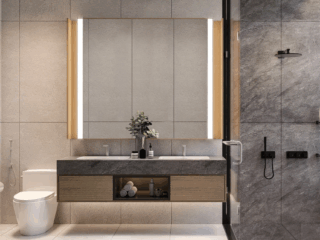
Financing a new home is a significant step, involving various financial decisions and considerations. One of the most critical aspects of this process is choosing the right home loan. With numerous options available, it’s essential to understand which mortgage product suits your specific needs and financial situation.
This article explores several popular home loan options that help you make informed decisions.
Understanding Conventional Mortgages
Conventional mortgages stand out as a preferred option among many homebuyers due to their versatility and independence from government backing, unlike FHA or VA loans. This absence of government support translates into more flexible terms and conditions for borrowers.
Also, lenders of conventional mortgages often offer varied loan structures and payment plans, allowing borrowers to choose options that best align with their financial situations and long-term housing goals, making these loans highly adaptable to individual needs.
However, if you want to get more detailed information about conventional mortgages, you can consult with professionals and providers specializing in these types of loans, such as the Moreira Team home loans.
Exploring Different Home Loan Options
Knowing the different home loan options is essential for potential homeowners navigating the complex landscape of purchasing a house. Each type of mortgage comes with distinct advantages, terms, and eligibility criteria, tailored to meet diverse financial situations and preferences. By understanding these options, you can make informed decisions that align with your long-term financial and housing goals.
Below are the various home loan options to consider:
Fixed-Rate Mortgages (FRM)
A fixed-rate mortgage offers a steady interest rate and monthly payments that remain the same for the life of the loan. This predictability makes it easier to budget as you won’t have to worry about rising interest rates affecting your monthly payments. Fixed-rate mortgages are typically available in terms ranging from 10 to 30 years, allowing you to choose a term that best fits your financial goals.
On the other hand, a fixed-rate mortgage is best suited if you intend to remain in your home for many years and value consistent monthly expenses. The unchanging nature of the payments provides financial predictability and ease in budgeting, making it a stable choice for long-term homeowners.
Adjustable-Rate Mortgages (ARM)
Adjustable-rate mortgages start with a fixed interest rate for a certain period, after which the rate adjusts at regular intervals based on a specific index. The initial fixed period can range from one to ten years, and the adjustment periods can vary, affecting the overall interest rate and monthly payments.
Furthermore, the main advantage of an ARM is that the initial interest rate is usually lower than that of a fixed-rate mortgage, which might be appealing to those looking to save money in the short term. However, there’s a risk that interest rates might significantly increase over time, potentially leading to higher future payments.
Lastly, ARMs are suitable if you anticipate an increase in future earnings, plan to move or refinance before the rate adjusts, or are purchasing a home during a period of high-interest rates.
Government-Backed Loans
Government-backed loans are designed to help certain demographics of homebuyers. These include the following:
FHA Loans: These loans are backed by the Federal Housing Administration and typically require a lower down payment compared to conventional loans. They’re ideal for first-time homebuyers or those with lower credit scores.
VA Loans: Veterans Affairs backs these loans, which are available to veterans, active-duty service members, and some members of the National Guard and Reserves.

VA loans offer the benefit of no down payment and no private mortgage insurance (PMI).
USDA Loans: The U.S. Department of Agriculture offers these loans to eligible rural and suburban homebuyers who meet certain income requirements. Like VA loans, USDA loans can offer the advantage of no down payment.
On the other hand, it’s essential to know that the main advantage of government-backed loans is their accessibility to homebuyers who might not qualify for conventional loans due to financial constraints or credit issues. However, they often require additional fees, such as upfront and annual mortgage insurance premiums.
Jumbo Loans
Jumbo loans exceed the conforming loan limits set by the Federal Housing Finance Agency (FHFA), making them necessary for purchasing higher-priced homes. These loans typically require more rigorous credit requirements and larger down payments. They’re best suited if you’re purchasing high-value properties, have excellent credit, high income, and substantial down payments.
Choosing The Right Home Loan
Selecting the right mortgage requires a thorough assessment of both personal and financial circumstances. Key factors to consider include:
- Credit Score: It determines eligibility and affects interest rates.
- Income Stability: It ensures you can meet monthly payments over time.
- Long-Term Financial Goals: It aligns with your future financial planning.
- Housing Market Conditions: It influences the type of mortgage and timing of the purchase.
Consulting with a mortgage professional is highly advisable. They can offer tailored advice and help navigate the complexities of home financing, ensuring you choose a mortgage that best suits your needs and financial situation. This expert guidance is crucial in making an informed decision that aligns with both your immediate capabilities and long-term aspirations.
Conclusion
Purchasing a home is a monumental task that requires careful planning and consideration. Understanding the different types of home loans available and assessing which one best suits your needs is crucial. By exploring these options, you can secure the financing that best fits your financial situation and homeownership goals.






